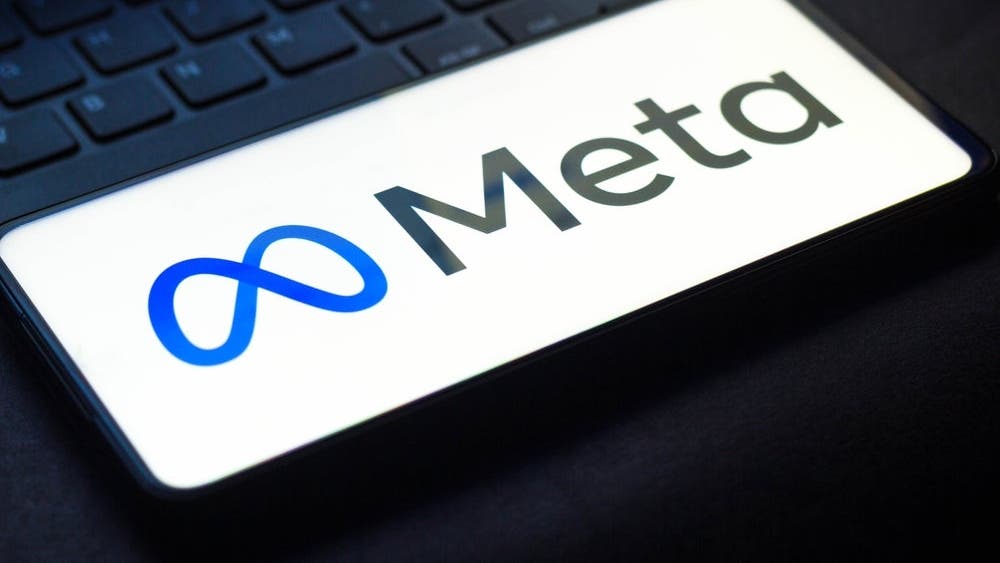CryptoCurrency
I’m 69 and will have $6,000 a month in retirement income. The bulk of my $3.6 million is equities. Is that OK?


Dear Quentin,
I appreciate and enjoy your column and advice.
I am 69, single, female and in good health. I worked extremely hard. I saved money and lived frugally. I retired earlier than planned, in April 2022, because our elderly mom required more care. She lived to 91, but in her final years had dementia and poor mobility, eventually needing 24/7 care. Luckily, she had lived modestly and invested wisely, which paid for in-home care, supplemented by my sisters’ and my labor.
Most Read from MarketWatch
My house is fully paid for, as is my modest five-year-old car, which I bought certified used using a lump payout from saved-up vacation hours. I have a great federal pension of $3,000 a month after taxes and health insurance, great federal health insurance, and $3 million invested after my self-managed stock portfolio exploded over the past three years. I don’t trade that much, just to invest extra money or move a bit here and there when it makes sense for taxes.
My inheritance raises that to about $3.6 million. My current investments are in Roth IRAs worth $600,000, which includes an $85,000 inherited Roth, so that has 10 years to grow tax-free. The rest is in stocks, exchange-traded funds and tax-deferred Thrift Savings Plan funds. It’s allocated about 60/40 tax-deferred/taxable accounts, except for about $100,000 in CDs and cash. My non-TSP accounts are tech-heavy, with the nontech stocks well diversified.
The common wisdom is to keep less in equities as we age. However, my pension, Social Security benefits — which I’ll draw at 70 and which will amount to about $3,000 per month after taxes — and health insurance are all federally backed, so those are all more like a Treasury bond. Even if Social Security payments decrease after 2035, I should be fine. I’ll keep the final inheritance money — about $90,000 — in cash and CDs in order to make significant repairs to my small house.
Do I have too much money in equities?
Single Retired Investor
Related: ‘This was a money grab’: My uncle took over the family business — and left my father out in the cold. Can I claim our inheritance?
Dear Investor,
I love that you bought your car using money saved from vacation time.
I found myself cheering you on as I read your letter because of your open, evenhanded approach to the story of your financial life. You weren’t grandstanding, nor did you express any lingering resentments or lamentations about the years you spent taking care of your elderly mother. In other words, you did all of this while climbing some pretty steep virtual mountains, and you did it by not having anyone to rely on but your good self.
Asset allocation should be based on a person’s income and expenses, not their age alone, says Jesica Ray, lead adviser at Brighton Jones, a Seattle-based registered investment adviser. “Portfolio immunization is an asset-allocation strategy that focuses on ensuring that a person is only taking the amount of risk they can afford,” she says. “The goal primarily is to safeguard the funding of liabilities. Then the rest can be put into the growth engine of the portfolio.”
You’re going against conventional wisdom by holding the bulk of your assets in equities, but you have made smart decisions, including going heavy on tech stocks, even if the group of tech stocks known as the Magnificent Seven may not show as much growth in the years ahead as they have recently. At age 70, most advisers would say to invest 30% in stocks and the rest in bonds and safer havens. But you have an appetite for risk and success. You also have a pension and Social Security to spread out that risk.
During the third quarter of 2024, the Magnificent Seven — Nvidia NVDA, Apple AAPL, Microsoft MSFT, Alphabet GOOGL, Tesla TSLA, Meta META and Amazon AMZN — underperformed the broader index for the first time since the final quarter of 2022. But as Michael Arone, chief investment strategist for State Street Global Advisors, said in an interview with MarketWatch in early October, “A few myths have been busted.” Chief among them: The stock market can rise without them.
You have $190,000 in cash and CDs, which is a smart move and gives you a de facto emergency fund, and I fully support your intention to do a bit of splurging here and there. You’ve worked extremely hard and given your mother your time and love, and now is the time for you to see a bit of the world, have an adventure and enjoy life. This is what good planning gives you: peace of mind, freedom and the opportunity to take trips to keep the cobwebs from the door.
Nate Ahlberg, a senior wealth adviser at wealth-management company Prosperity in Minneapolis, Minn., suggests moving on to the next phase of your wealth-management plan. “Your reference to your self-managed portfolio exploding’ over the past three years and that your non-TSP accounts are ‘tech-heavy’ leads me to suspect that you have some concentrated holdings,” he says. “That has likely helped you create significant wealth.”
Diversification can now help preserve your wealth, in whatever form that takes. “Diversification doesn’t necessarily mean making significant adjustments to your equity allocation,” Ahlberg says. “If your risk tolerance remains aggressive, you could consider diversifying within your equity allocation — growth versus value, large cap versus mid cap versus small cap, domestic versus international.”
And if there is a stock-market bust? It would probably take you less than a decade to get back to black. But you have, for the most part, enough cash to see you through. After the 1929 crash, when the stock market lost roughly 90% of its value, the Dow Jones Industrial Average DJIA took more than 25 years — until Nov. 23, 1954 — before it closed above the level at which it closed on that fateful day. But analysts say it actually took five to 10 years, accounting for deflation.
You lived through the recession of 2007-09, so you don’t need me to tell you that it took more than five years for the market to recover from that financial crisis, which was caused in part by predatory and subprime lending in the mortgage market and a lack of financial regulation. Keep in mind that diversification is also key to weathering such unexpected storms: Many companies survived the 1929 and 2008 financial crashes, but some did not.
If you can live comfortably on your existing income, I think you should stay the course.
More columns from Quentin Fottrell:
Most Read from MarketWatch
CryptoCurrency
Do millionaires keep their money in checking accounts?

The habits of millionaires are a topic of interest when it comes to financial advice. After all, unless they received a large chunk of money as an inheritance or gift, most millionaires had to be smart with their money to get where they are.
Learning how millionaires accumulate wealth — and where they keep it — can provide valuable insights for anyone focused on growing their money. One common question is whether or not millionaires keep money in checking accounts.
Studies show that in recent years, millionaires are keeping a significant portion of their wealth in cash. According to CNBC’s , that portion was about 24% in 2023. While this doesn’t necessarily mean a quarter of a millionaire’s wealth is sitting in a checking account, it does indicate the importance of maintaining liquid assets. And a checking account can be a helpful tool for doing so — whether or not you’re a millionaire.
Anyone, regardless of net worth, can find value in a checking account. Checking accounts allow unlimited deposits and withdrawals, check writing, bill pay, and other features to help you manage your money day-to-day.
While millionaires may keep large portions of their wealth in other deposit accounts and investments, some may use a checking account to manage daily spending. Millionaires also recognize the importance of having liquid assets, like funds in checking and savings accounts. Accessible cash lets you cover unexpected expenses without needing to sell off investments, borrow money, or pay a penalty for tapping your retirement savings early.
The amount of money a millionaire keeps in their checking account is highly personal and depends on preference. However, because checking accounts rarely earn competitive — if any — interest, some millionaires intentionally limit their checking account balance. Some may choose to keep the bare minimum, such as a couple of months’ worth of essential expenses, in their checking accounts, keeping the rest of their wealth in more lucrative assets.
Regardless of preference, it would be surprising for a millionaire to keep more than $250,000 in a single checking account. That’s because the Federal Deposit Insurance Corp. (FDIC) only insures up to $250,000 in deposits per institution, per account holder.
While millionaires may use checking accounts for day-to-day financial transactions, they may also use some of the following accounts in addition to, or in place of, a checking account:
-
Savings accounts: Like checking accounts, savings accounts provide a high degree of liquidity, allowing you to access your money as needed for regular or unexpected expenses. High-yield savings accounts, in particular, give millionaires an extra bang for their buck. Some of the best accounts currently offer rates upwards of 4% versus the national average savings account rate of 0.46%.
-
Cash management accounts: Cash management accounts (CMAs) pay competitive interest rates while maintaining more accessibility than a savings account. Some CMAs come with a debit card and ATM access, and many provide extended FDIC coverage limits by “sweeping” additional deposits into partner banks. CMAs are available at brokerages, not banks, facilitating easy transfers between investment and cash accounts.
-
Money market accounts: Similar to CMAs, money market accounts combine features of checking and savings accounts, often paying competitive interest rates and providing check writing and ATM access. Banks and credit unions offer these accounts, which are federally insured. Minimum opening deposit and minimum balance requirements are often higher than those for standard savings accounts.
-
Retirement and tax-advantaged accounts: Millionaires understand the importance of investing for their later years, and retirement accounts such as 401(k)s and IRAs allow them to do so in a tax-advantaged way. Some retirement accounts, like 401(k)s, are offered by certain employers. Others, such as traditional and Roth IRAs, are available to anyone.
-
Brokerage accounts: The IRS limits contributions to tax-advantaged accounts, and millionaires typically invest beyond these limits. They do so with taxable brokerage accounts, which can hold investments such as stocks, bonds, and mutual funds without contribution limits.
-
Other investments, like real estate, commodities, and art: Some millionaires may decide to diversify their portfolio with other investment types. These could include real estate investments, such as investment properties or real estate investment trusts (REITs); commodities, such as metals or energy products; art; and more.
The amount of money millionaires keep in their checking accounts depends on personal preference. While some millionaires may keep six figures in their checking account to maintain a comfortable cash cushion, others may choose to keep the bare minimum in checking. You wouldn’t expect millionaires to keep more than $250,000 in a checking account, however, because balances over this threshold aren’t typically insured.
There’s no single bank that’s a favorite among millionaires; it’s another matter of preference. However, millionaires are likely to bank with institutions that offer private banking to those who meet specific financial requirements. Private banking may include wealth planning services, waived fees, dedicated bankers, and additional perks. J.P. Morgan Private Bank, Citi Private Bank, and Bank of America Private Bank are among some of the most popular banks for millionaires.
Billionaires may have checking accounts, but they likely use accounts that cater to ultra-high-net-worth individuals. These accounts may come with perks such as a dedicated banker, waived fees, and competitive interest rates. Alternatively, billionaires may opt for a cash management account with higher FDIC insurance coverage limits and checking account features.
No rule says you can’t have a million dollars in a checking account, but FDIC insurance typically only covers up to $250,000. Plus, you can get a bigger return on your investment by keeping $1 million elsewhere. One alternative is a cash management account, which acts like a checking account but generally earns higher interest. Plus, many cash management accounts insure more than the standard $250,000 by sweeping funds into multiple partner banks.
CryptoCurrency
Lumen And Meta Join Forces To Boost AI With Flexible, On-Demand Network Solutions


Lumen Technologies, Inc. (NYSE:LUMN) shares are trading higher on Monday after the company announced it is partnering with Meta Platforms, Inc. (NASDAQ:META) to significantly increase Meta’s network capacity and help drive its AI ambitions.
Lumen’s partnership offers Meta enhanced flexibility with secure, on-demand bandwidth, supporting its complex computing requirements and enabling it to serve billions daily.
Ashley Haynes-Gaspar, Lumen’s EVP and chief revenue officer, said, “We’ve transformed our company to meet this demand. As Meta’s customers use more AI services across its platforms, we’re helping provide Meta with a seamless, effortless, and flexible network that will meet its growing needs.”
Lumen Technologies said its Private Connectivity Fabric enables long-term network capacity for Meta’s AI.
Alex-Handrah Aimé, director of Meta’s Network Investments stated, “Our AI tools are performing increasingly more complex tasks including enabling conversations in a variety of languages and translating text to images in real time, while helping people interact with the world around them in new, immersive ways.”
Lumen will report third quarter 2024 results on November 5, 2024.
Investors can gain exposure to the stock via Invesco S&P SmallCap Utilities & Communication Services ETF (NASDAQ:PSCU) and First Trust Cloud Computing ETF (NASDAQ:SKYY).
Price Action: LUMN shares are up 9.50% at $7.38 at the last check Monday.
Image via Shutterstock
Read Next:
UNLOCKED: 5 NEW TRADES EVERY WEEK. Click now to get top trade ideas daily, plus unlimited access to cutting-edge tools and strategies to gain an edge in the markets.
Get the latest stock analysis from Benzinga?
This article Lumen And Meta Join Forces To Boost AI With Flexible, On-Demand Network Solutions originally appeared on Benzinga.com
© 2024 Benzinga.com. Benzinga does not provide investment advice. All rights reserved.
CryptoCurrency
US election optimism fuels $2.2B inflows in crypto products


CoinShares said the United States and Bitcoin led crypto investment product dynamics last week amid growing optimism over a potential Republican election win in the US.
CryptoCurrency
Quantum computer ‘threat’ to crypto is exaggerated — for now


Bitcoin’s private keys won’t be breached any time soon, but the industry still needs to transition to “post-quantum cryptography.”
CryptoCurrency
European investors pour record $105B into US Bitcoin ETFs


Despite record European inflows, Bitcoin has been unable to recover above the $70,000 psychological level since July.
CryptoCurrency
ApeCoin (APE) price jumps 100% on ApeChain launch


Apechain mainnet launch and LayerZero’s integration translated to 100% price upside for APE in recent days.
-

 Science & Environment1 month ago
Science & Environment1 month agoHyperelastic gel is one of the stretchiest materials known to science
-

 Technology4 weeks ago
Technology4 weeks agoIs sharing your smartphone PIN part of a healthy relationship?
-

 Science & Environment1 month ago
Science & Environment1 month ago‘Running of the bulls’ festival crowds move like charged particles
-

 Science & Environment1 month ago
Science & Environment1 month agoHow to unsnarl a tangle of threads, according to physics
-

 Science & Environment1 month ago
Science & Environment1 month agoMaxwell’s demon charges quantum batteries inside of a quantum computer
-

 Science & Environment4 weeks ago
Science & Environment4 weeks agoX-rays reveal half-billion-year-old insect ancestor
-

 Technology1 month ago
Technology1 month agoWould-be reality TV contestants ‘not looking real’
-

 Science & Environment1 month ago
Science & Environment1 month agoSunlight-trapping device can generate temperatures over 1000°C
-

 Science & Environment1 month ago
Science & Environment1 month agoLiquid crystals could improve quantum communication devices
-

 Science & Environment1 month ago
Science & Environment1 month agoQuantum ‘supersolid’ matter stirred using magnets
-

 Technology3 weeks ago
Technology3 weeks agoUkraine is using AI to manage the removal of Russian landmines
-

 Womens Workouts1 month ago
Womens Workouts1 month ago3 Day Full Body Women’s Dumbbell Only Workout
-

 TV3 weeks ago
TV3 weeks agoসারাদেশে দিনব্যাপী বৃষ্টির পূর্বাভাস; সমুদ্রবন্দরে ৩ নম্বর সংকেত | Weather Today | Jamuna TV
-

 Science & Environment1 month ago
Science & Environment1 month agoLaser helps turn an electron into a coil of mass and charge
-

 Science & Environment1 month ago
Science & Environment1 month agoWhy this is a golden age for life to thrive across the universe
-

 Science & Environment1 month ago
Science & Environment1 month agoA new kind of experiment at the Large Hadron Collider could unravel quantum reality
-

 Science & Environment1 month ago
Science & Environment1 month agoQuantum forces used to automatically assemble tiny device
-

 News3 weeks ago
News3 weeks agoMassive blasts in Beirut after renewed Israeli air strikes
-

 Football3 weeks ago
Football3 weeks agoRangers & Celtic ready for first SWPL derby showdown
-

 News3 weeks ago
News3 weeks ago▶ Hamas Spent $1B on Tunnels Instead of Investing in a Future for Gaza’s People
-

 News3 weeks ago
News3 weeks agoNavigating the News Void: Opportunities for Revitalization
-

 Science & Environment1 month ago
Science & Environment1 month agoA slight curve helps rocks make the biggest splash
-

 Science & Environment1 month ago
Science & Environment1 month agoNerve fibres in the brain could generate quantum entanglement
-

 Science & Environment1 month ago
Science & Environment1 month agoHow to wrap your mind around the real multiverse
-

 Technology3 weeks ago
Technology3 weeks agoSamsung Passkeys will work with Samsung’s smart home devices
-

 Business3 weeks ago
Business3 weeks agoWhen to tip and when not to tip
-

 Technology3 weeks ago
Technology3 weeks agoMicrophone made of atom-thick graphene could be used in smartphones
-

 MMA3 weeks ago
MMA3 weeks agoJulianna Peña trashes Raquel Pennington’s behavior as champ
-
Business3 weeks ago
DoJ accuses Donald Trump of ‘private criminal effort’ to overturn 2020 election
-

 MMA2 weeks ago
MMA2 weeks ago‘Uncrowned queen’ Kayla Harrison tastes blood, wants UFC title run
-

 Science & Environment1 month ago
Science & Environment1 month agoITER: Is the world’s biggest fusion experiment dead after new delay to 2035?
-

 Science & Environment1 month ago
Science & Environment1 month agoNuclear fusion experiment overcomes two key operating hurdles
-

 News1 month ago
News1 month ago▶️ Hamas in the West Bank: Rising Support and Deadly Attacks You Might Not Know About
-

 Science & Environment1 month ago
Science & Environment1 month agoPhysicists have worked out how to melt any material
-

 News1 month ago
News1 month ago▶️ Media Bias: How They Spin Attack on Hezbollah and Ignore the Reality
-

 MMA3 weeks ago
MMA3 weeks agoPereira vs. Rountree prediction: Champ chases legend status
-

 Sport3 weeks ago
Sport3 weeks agoWales fall to second loss of WXV against Italy
-

 Sport3 weeks ago
Sport3 weeks agoMan City ask for Premier League season to be DELAYED as Pep Guardiola escalates fixture pile-up row
-

 Science & Environment1 month ago
Science & Environment1 month agoTime travel sci-fi novel is a rip-roaringly good thought experiment
-

 Technology4 weeks ago
Technology4 weeks agoWhy Machines Learn: A clever primer makes sense of what makes AI possible
-
News1 month ago
the pick of new debut fiction
-

 Technology1 month ago
Technology1 month agoMeta has a major opportunity to win the AI hardware race
-

 News1 month ago
News1 month agoOur millionaire neighbour blocks us from using public footpath & screams at us in street.. it’s like living in a WARZONE – WordupNews
-

 Technology3 weeks ago
Technology3 weeks agoThis AI video generator can melt, crush, blow up, or turn anything into cake
-

 Technology3 weeks ago
Technology3 weeks agoMusk faces SEC questions over X takeover
-

 Sport3 weeks ago
Sport3 weeks agoBoxing: World champion Nick Ball set for Liverpool homecoming against Ronny Rios
-

 MMA3 weeks ago
MMA3 weeks agoDana White’s Contender Series 74 recap, analysis, winner grades
-

 News3 weeks ago
News3 weeks agoFamily plans to honor hurricane victim using logs from fallen tree that killed him
-

 Technology3 weeks ago
Technology3 weeks agoThe best budget robot vacuums for 2024
-

 Sport3 weeks ago
Sport3 weeks agoWorld’s sexiest referee Claudia Romani shows off incredible figure in animal print bikini on South Beach
-

 News3 weeks ago
News3 weeks ago‘Blacks for Trump’ and Pennsylvania progressives play for undecided voters
-

 MMA3 weeks ago
MMA3 weeks agoPereira vs. Rountree preview show live stream
-
Business3 weeks ago
Sterling slides after Bailey says BoE could be ‘a bit more aggressive’ on rates
-

 News3 weeks ago
News3 weeks agoGerman Car Company Declares Bankruptcy – 200 Employees Lose Their Jobs
-

 Sport3 weeks ago
Sport3 weeks agoCoco Gauff stages superb comeback to reach China Open final
-
Business3 weeks ago
Bank of England warns of ‘future stress’ from hedge fund bets against US Treasuries
-

 Business3 weeks ago
Business3 weeks agoChancellor Rachel Reeves says she needs to raise £20bn. How might she do it?
-

 Technology3 weeks ago
Technology3 weeks agoMicrosoft just dropped Drasi, and it could change how we handle big data
-

 Sport3 weeks ago
Sport3 weeks agoChina Open: Carlos Alcaraz recovers to beat Jannik Sinner in dramatic final
-

 Technology3 weeks ago
Technology3 weeks agoTexas is suing TikTok for allegedly violating its new child privacy law
-

 Sport3 weeks ago
Sport3 weeks agoSturm Graz: How Austrians ended Red Bull’s title dominance
-

 Money3 weeks ago
Money3 weeks agoWetherspoons issues update on closures – see the full list of five still at risk and 26 gone for good
-

 MMA3 weeks ago
MMA3 weeks agoUFC 307 preview show: Will Alex Pereira’s wild ride continue, or does Khalil Rountree shock the world?
-

 News3 weeks ago
News3 weeks agoHeavy strikes shake Beirut as Israel expands Lebanon campaign
-

 TV3 weeks ago
TV3 weeks agoLove Island star sparks feud rumours as one Islander is missing from glam girls’ night
-

 MMA3 weeks ago
MMA3 weeks agoAlex Pereira faces ‘trap game’ vs. Khalil Rountree
-

 Technology3 weeks ago
Technology3 weeks agoJ.B. Hunt and UP.Labs launch venture lab to build logistics startups
-

 TV3 weeks ago
TV3 weeks agoPhillip Schofield accidentally sets his camp on FIRE after using emergency radio to Channel 5 crew
-

 Technology3 weeks ago
Technology3 weeks agoGmail gets redesigned summary cards with more data & features
-

 News3 weeks ago
News3 weeks agoHeartbreaking end to search as body of influencer, 27, found after yacht party shipwreck on ‘Devil’s Throat’ coastline
-
Business3 weeks ago
Head of UK Competition Appeal Tribunal to step down after rebuke for serious misconduct
-

 Sport3 weeks ago
Sport3 weeks agoAaron Ramsdale: Southampton goalkeeper left Arsenal for more game time
-

 Technology3 weeks ago
Technology3 weeks agoThe best shows on Max (formerly HBO Max) right now
-

 Entertainment3 weeks ago
Entertainment3 weeks agoNew documentary explores actor Christopher Reeve’s life and legacy
-

 Science & Environment1 month ago
Science & Environment1 month agoPhysicists are grappling with their own reproducibility crisis
-

 Football3 weeks ago
Football3 weeks agoSimo Valakari: New St Johnstone boss says Scotland special in his heart
-

 News3 weeks ago
News3 weeks agoWoman who died of cancer ‘was misdiagnosed on phone call with GP’
-

 News3 weeks ago
News3 weeks agoHull KR 10-8 Warrington Wolves – Robins reach first Super League Grand Final
-
Business3 weeks ago
The search for Japan’s ‘lost’ art
-

 Technology3 weeks ago
Technology3 weeks agoHow to disable Google Assistant on your Pixel Watch 3
-

 Business3 weeks ago
Business3 weeks agoStark difference in UK and Ireland’s budgets
-

 MMA3 weeks ago
MMA3 weeks agoKetlen Vieira vs. Kayla Harrison pick, start time, odds: UFC 307
-

 Entertainment3 weeks ago
Entertainment3 weeks ago“Golden owl” treasure hunt launched decades ago may finally have been solved
-

 Technology3 weeks ago
Technology3 weeks agoEpic Games CEO Tim Sweeney renews blast at ‘gatekeeper’ platform owners
-

 Science & Environment3 weeks ago
Science & Environment3 weeks agoMarkets watch for dangers of further escalation
-

 Technology3 weeks ago
Technology3 weeks agoApple iPhone 16 Plus vs Samsung Galaxy S24+
-

 TV3 weeks ago
TV3 weeks agoMaayavi (මායාවී) | Episode 23 | 02nd October 2024 | Sirasa TV
-

 Technology3 weeks ago
Technology3 weeks agoPopular financial newsletter claims Roblox enables child sexual abuse
-

 Technology3 weeks ago
Technology3 weeks agoOpenAI secured more billions, but there’s still capital left for other startups
-

 Health & fitness3 weeks ago
Health & fitness3 weeks agoNHS surgeon who couldn’t find his scalpel cut patient’s chest open with the penknife he used to slice up his lunch
-

 Money3 weeks ago
Money3 weeks agoPub selling Britain’s ‘CHEAPEST’ pints for just £2.60 – but you’ll have to follow super-strict rules to get in
-

 News3 weeks ago
News3 weeks agoBalancing India and China Is the Challenge for Sri Lanka’s Dissanayake
-

 Science & Environment1 month ago
Science & Environment1 month agoA tale of two mysteries: ghostly neutrinos and the proton decay puzzle
-
Business4 weeks ago
Eurosceptic Andrej Babiš eyes return to power in Czech Republic
-

 Technology3 weeks ago
Technology3 weeks agoUniversity examiners fail to spot ChatGPT answers in real-world test
-

 Sport1 month ago
Sport1 month agoJoshua vs Dubois: Chris Eubank Jr says ‘AJ’ could beat Tyson Fury and any other heavyweight in the world
-
News1 month ago
The Project Censored Newsletter – May 2024
-

 Technology4 weeks ago
Technology4 weeks agoArtificial flavours released by cooking aim to improve lab-grown meat
-

 MMA3 weeks ago
MMA3 weeks agoHow to watch Salt Lake City title fights, lineup, odds, more
-
Business3 weeks ago
Top shale boss says US ‘unusually vulnerable’ to Middle East oil shock


You must be logged in to post a comment Login